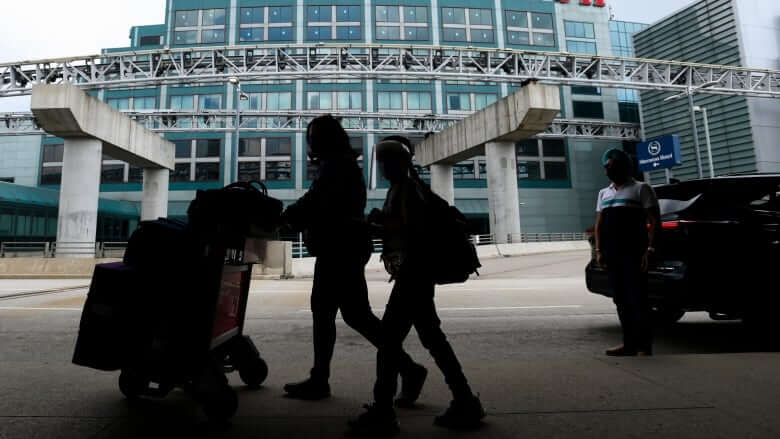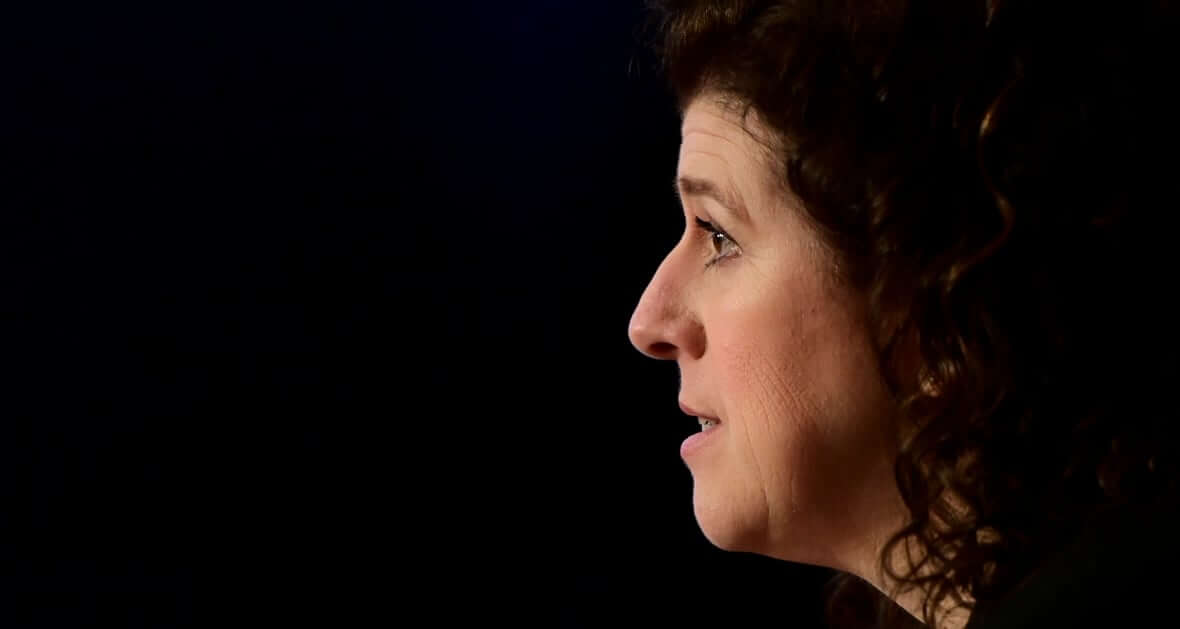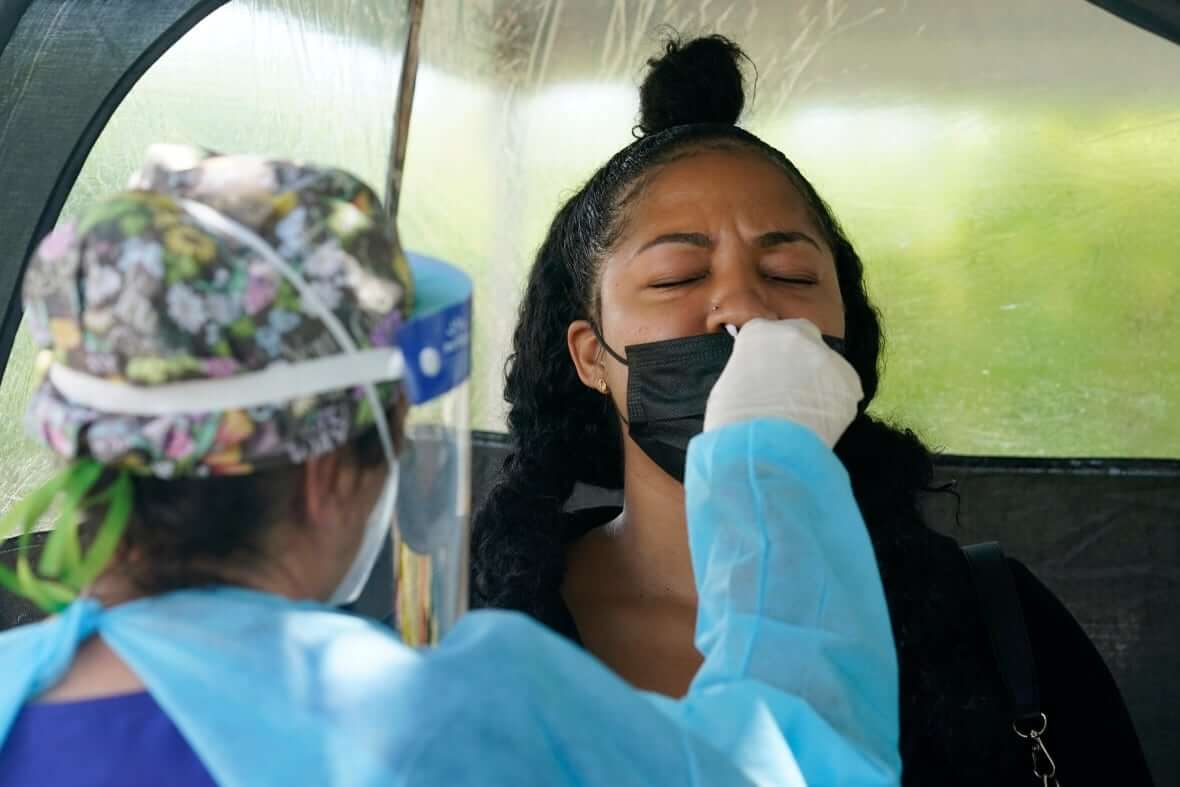Public Health Agency of Canada failed to keep tabs on most quarantine hotel stays, says AG

The Public Health Agency of Canada struggled to keep track of whether travellers ordered to stay in quarantine hotels actually did so, according to a new report from the auditor general.
Auditor General Karen Hogan tabled four reports this afternoon in the House of Commons looking at COVID-19 measures. One of the reports examines enforcement of quarantine hotel stays and testing requirements from July 1, 2020 to the end of June 2021.
At the start of the year — in addition to the already required 14-day quarantine period — the government introduced new rules for incoming travellers meant to limit the spread of COVID-19 and its variants.
Travellers crossing by both land and air were required to show a negative COVID-19 test no more than 72 hours before their scheduled flights to Canada.
Air and land travellers were also required to undergo both on-arrival and post-arrival COVID-19 tests. In addition, incoming air travellers were required to pre-book and pre-pay for a three-day stay at a government-authorized hotel, where they were to remain in quarantine while waiting for their on-arrival test results.
Hogan’s audit found that the Public Health Agency of Canada (PHAC) didn’t have an automated system to track whether travellers ordered to quarantine at authorized hotels actually did so.
It discovered PHAC only had records to verify hotel stays for about a quarter of air travellers for the February to June 2021 period.
“Because the agency did not have records of stay for 75 per cent of travellers who flew into Canada, it did not know whether those who were required to quarantine at government authorized hotels had complied,” said Hogan.
“In addition, the agency did not reliably track whether air travellers who had been notified of positive COVID-19 tests had stayed at a government-authorized hotel as required.”
Although they’re not required to do so, some hotels told PHAC by email that 326 people who had booked quarantine stays never checked in. About 74 per cent of these travellers were then referred to law enforcement as a priority for follow-up action — but no tickets had been issued at the time the audit was tabled.
PHAC agreed with the audit’s recommendation that it improve its tracking and said in response that it initiated an assessment of its information technology systems and data requirements for border measures in November.
New omicron measures criticized
The government dropped the hotel quarantine requirement this summer but has reinstated some measures as part of its attempt to contain the emerging omicron variant.
Foreign travellers from 10 nations — all of them in Africa — are barred from entering Canada, while Canadian citizens and permanent residents returning from affected countries must quarantine. Air travellers from all countries except the United States are also required to take COVID-19 tests when arriving in Canada.

These policy measures have attracted criticism — both over the quality of the hotel stays and over the way these measures single out African countries when the omicron variant has been detected in other countries as well.
“That is not only discriminatory, it is ridiculous,” said Dr. Christian Happi, a professor of molecular biology and genomics, during a briefing with the World Health Organization’s regional office in Africa Thursday morning.
Missing test results
Hogan’s audit also found the health agency mislaid or was unable to match to travellers about 80,500 on-arrival test results and 57,200 post-arrival test results — about 30 per cent of the total from February to June of this year.
“We also found that, although the Public Health Agency of Canada successfully contacted most travellers with positive COVID-19 tests, it had not contacted 14 per cent of the travellers who tested positive for COVID-19 to assess their isolation plans,” says the audit.
An earlier audit from Hogan’s office found that public health officers struggled to keep tabs on returning travellers in the early days of the pandemic. That March 2021 audit found PHAC was not sure if two thirds of the people who were supposed to be under home quarantine were actually following the rule.
‘This is not a success story’
Thursday’s report concluded that while the agency eventually improved its verification of traveller compliance, significant gaps remained — and from January to June 2021 it still couldn’t verify quarantine compliance for 37 per cent of travellers.
The auditor attributed the improvement in PHAC’s verification efforts to a shift from paperwork to collecting contact information electronically.
“Though the Public Health Agency of Canada improved its results, this is not a success story,” said Hogan.
“The agency’s inability to confirm whether more than a third travellers complied with quarantine orders remains a significant problem.”

Hogan did say that, since the last audit, PHAC had increased the number of referrals to law enforcement related to suspected cases non-compliance. The agency did not know the outcome of 59 per cent of those priority referrals, the audit said.
“Ticketing of travellers for non-compliance was dependent on the enforcement regime in each province and territory, and in some jurisdictions, no tickets were issued,” said the report.
Hogan said that the government needs to improve how it delivers on its pandemic policies as concerns about omicron mount.
“With travel increasing and new variants continuing to emerge, the agency needs to improve the way it manages and enforces border control measures that are meant to limit the introduction of the COVID-19 virus and its variants into Canada,” she said.
The other audits Hogan’s office released today concluded that:
- Inspections conducted by Employment and Social Development Canada provided little assurance that the health of temporary foreign workers in Canada’s agricultural sector was being protected during the pandemic.
- Although the Regional Relief and Recovery Fund delivered last-resort assistance to thousands of businesses and organizations affected by the COVID-19 pandemic, several weaknesses in program management lessened its efficiency, fairness and transparency.
- Emergency programs that were meant to reduce food insecurity and support resilience in Canada’s food processing sector during the COVID-19 pandemic helped mitigate some of the effects of the pandemic on elements of Canada’s food system.





Redes Sociais - Comentários